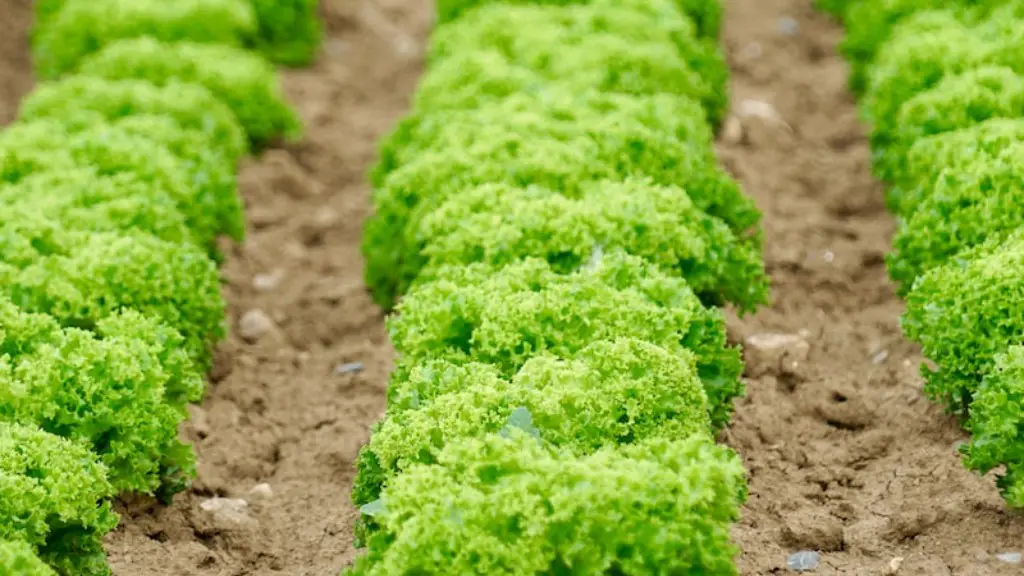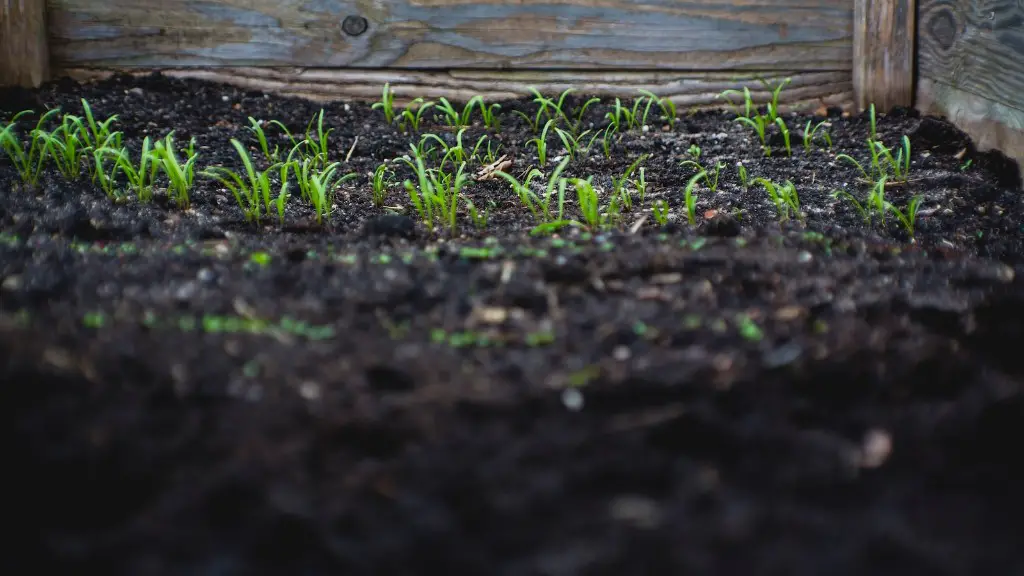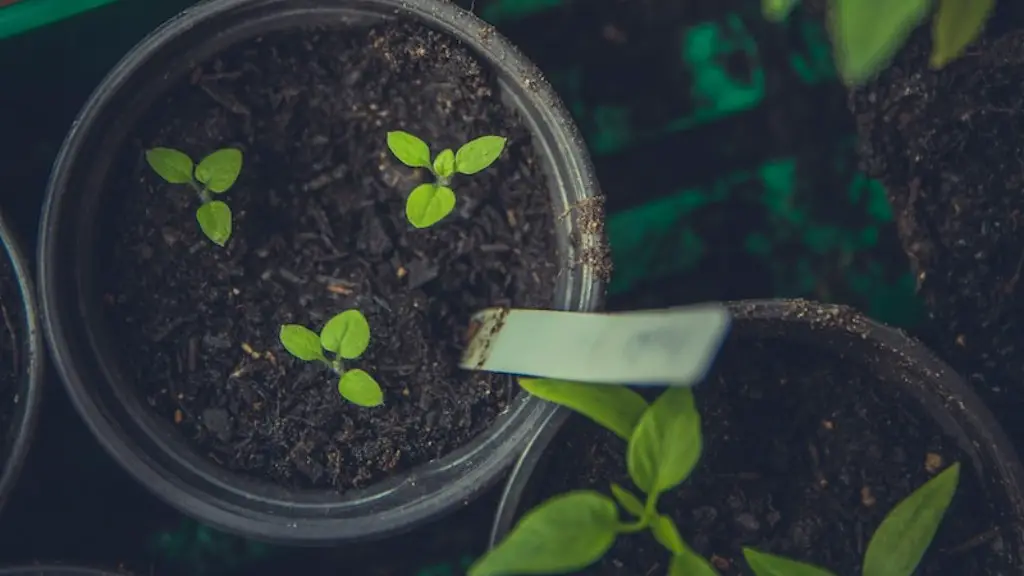Phosphoric acid is a chemical compound that is commonly used in agriculture. It is used as a fertilizer and as a herbicide. It is a white, odorless, and symbolized as H3PO4. Phosphoric acid is found in many household products, such as rust removers and distilled white vinegar. When used in agriculture, it is typically diluted with water and then sprayed on crops.
No definitive answer exists, as phosphoric acid can be used in many different ways in agriculture. However, some potential uses include: applying it to crops as a fertilizer, using it to make phosphorous-containing pesticides, or adding it to irrigation water to help plants uptake phosphorous.
Can you use phosphoric acid as fertilizer?
Triple superphosphate (TSP) is a fertilizer produced by the reaction of phosphoric acid with finely ground rock phosphate. It is not used directly as a fertilizer because it is corrosive, but is used to manufacture other fertilizers.
In most cases, phosphorous acid is applied to the foliage. The compound gets translocated in the plant to the roots and is therefore effective against oomycetes that affect roots. Phosphorous acid was shown to be effective when applied as a root drench against P cinnamomi, P.
How do you use phosphoric acid
Phosphoric acid is a strong acid that is used in many different industries and applications. In agriculture, phosphoric acid is used as a fertilizer to help crops grow. In the detergent industry, phosphoric acid is used as a cleaning agent. And in the food industry, phosphoric acid is used as a food additive to add an acidic flavor to foods. Phosphoric acid is also used in water treatment products to remove impurities from water.
Phosphoric acid is an important ingredient in fertilizers and is applied at the rate of 100 to 200 pounds per acre. It is advantageous to have the mixture of water and acid turn at least one sharp bend in the ditch to insure good mixing.
Does phosphoric acid help plant growth?
Both phosphoric acid (H3PO4) and phosphorous acid (H3PO3) are agrochemicals essential for crop production. Under normal plant growth conditions, both dissociate and exist as corresponding anions, phosphate and phosphite.
Phosphoric acid is a multi-function agent that can be used for plant nutrition, pH adjustment and cleansing irrigation equipment. It is an excellent source of phosphorus for plants and can help improve plant growth and yield. Phosphoric acid can also help prevent lime precipitation in irrigation equipment, which can clog and damage equipment.
Can plants absorb phosphoric acid?
Phosphorus is a key plant nutrient that helps promote growth and development. Plants typically take up phosphorus as the dihydrogenphosphate ion, H2PO4-, which is derived from phosphoric acid, H3PO4. Phosphorus is essential for several key processes in plants, including cell division, energy transfer, and enzyme activity.
There are a few ways that you can make your soil more acidic which include adding sulfur, iron sulfate, sphagnum peat moss, acidic fertilizer, aluminum sulfate, and ammonium sulfate. It is important to note that adding sulfur will take some time to lower the pH of the soil, so it should be added the year before you want to plant.
What is the best way to add phosphorus to soil
Adding phosphorus to your soil is a great way to give your plants a boost. Phosphorus is an essential nutrient for plant growth, and it can be found in a variety of natural sources. Compost, animal manure, bone meal, rock phosphate, and green manure are all great options for adding phosphorus to your soil. Add it to your soil 1-2 weeks before you plant for best results. You can also add it during the growing season to give your plants a little extra oomph.
The main use of phosphoric acid is as a fertiliser. It is used to make three phosphate salts which are used as fertilisers: triple superphosphate (TSP), diammonium hydrogen phosphate (DAP) and monoammonium dihydrogen phosphate (MAP). These three fertilisers are used to supply phosphate, which is an essential plant nutrient, to crops. Phosphoric acid is also used in the manufacture of other products, such as detergents, food additives and water treatment chemicals.
What does phosphoric acid do to soil?
Organic phosphates are highly necessary for many reactions that take place in living cells, and are thus required for maintaining high levels of plant growth. In particular, phosphoric acid is added during the fertilizer production process in order to create more phosphate-rich soils that can support higher levels of plant growth.
The phosphoric acid in coke reacts with the baking soda to produce carbon dioxide gas. This gas is very stable and does not react with other chemicals easily.
Will phosphoric acid lower soil pH
Organic fertilizers, compost teas, and phosphoric acids can all help to decrease the pH of soil. This can in turn lead to changes in the composition of phosphorus forms in the soil. These amendments can help to create more nutrient-rich and hospitable conditions for plants.
A weak acid is an acid that only partially dissociates in water. The degree to which an acid dissociates is described by its acid ionization constant, K a .
Phosphoric acid is stronger than acetic acid, and so is ionized to a greater extent. Acetic acid is stronger than carbonic acid, and so on.
What does too much phosphorus do to grass?
Phosphorus is an essential element for plant growth, but too much phosphorus can be harmful. When soil tests show high levels of phosphorus, it is important to take steps to reduce the amount of phosphorus in the soil to protect plants. Excessive soil phosphorus can reduce the plant’s ability to take up required micronutrients, particularly iron and zinc. This can cause plants to grow poorly and even die.
The use of phosphorous acid fungicides has been found to be especially effective in controlling the growth of Oomycete pathogens, such as Phytophthora, Pythium, and downy mildews. This is an important discovery, as these pathogens can cause serious damage to crops. The use of these fungicides can help to protect crops from these damaging pathogens.
Warp Up
Phosphoric acid is an essential ingredient in agricultural fertilizers. It is also used in the manufacturing of other agricultural chemicals, such as herbicides and pesticides. Phosphoric acid can be applied to crops through the soil or as a foliar spray. It is also used in the production of animal feed and in the treatment of water for agricultural use.
It is clear that phosphoric acid has many uses in agriculture. It can be used as a fertilizer, a soil amendment, or a pest control agent. It is also effective in controlling weeds. When used in combination with other products, it can help to increase crop yields.





